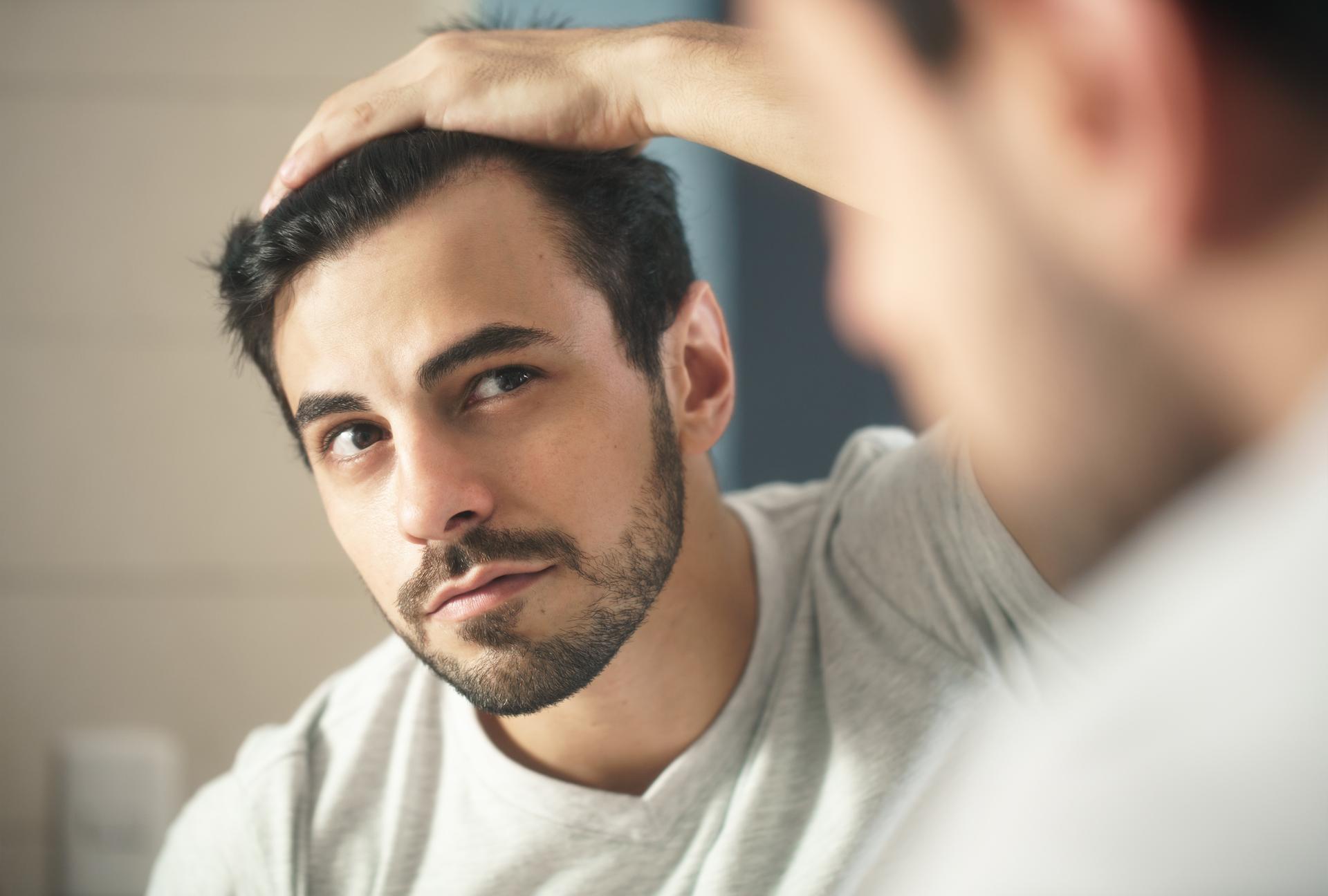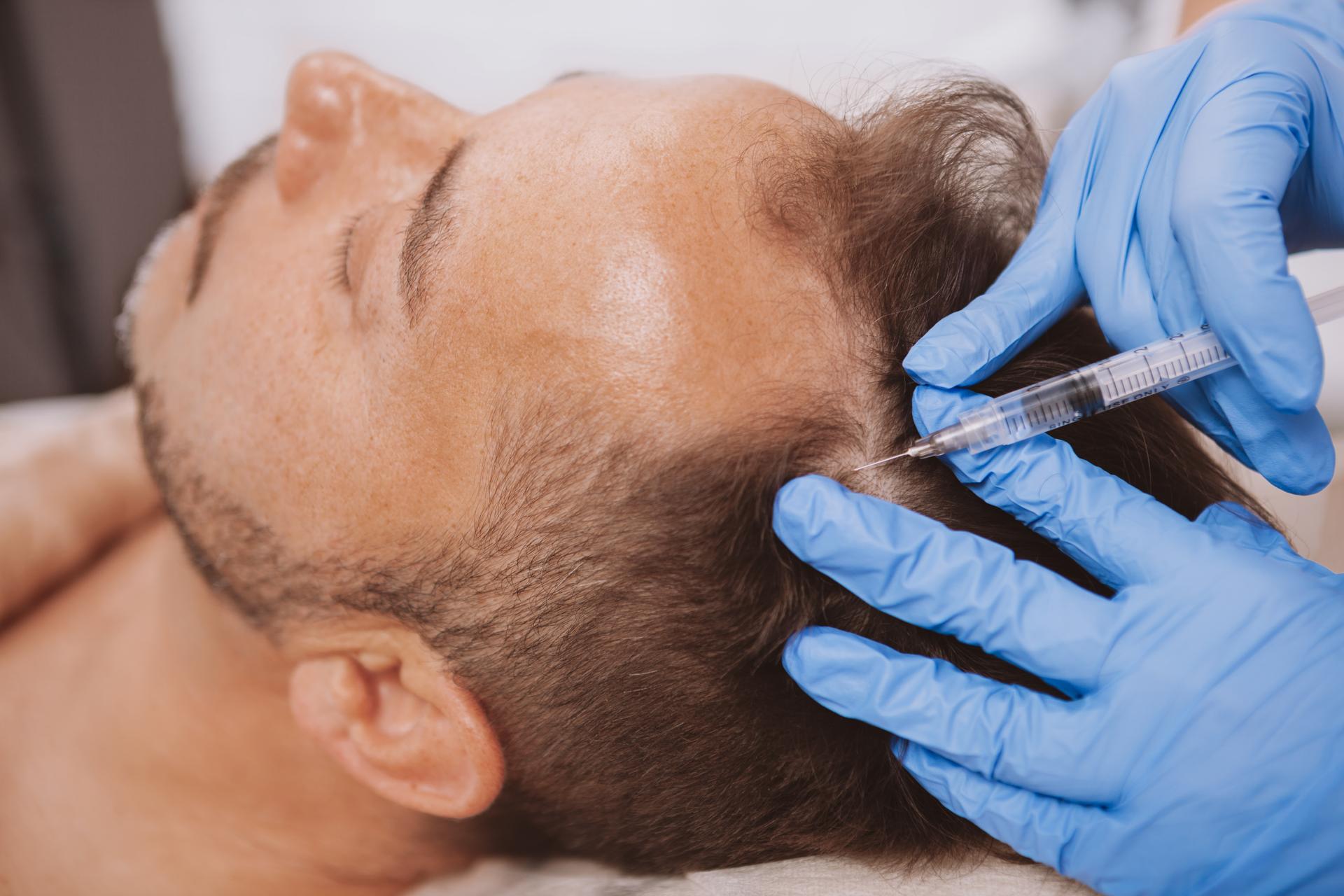Hair loss in men is as common as hair loss in women. Hair is one of our most essential features and has the power to change our whole personality. But in the present scenario, hair loss is common due to genetics, pollution, and harmful chemical products. Male hair loss typically starts in the twenties. It can even begin in your teenage years and eventually worsen with age.
What Should You Know About Hair Loss In Men?
Identifying your particular hair loss problem is the first step towards the solution to it.
Five kinds of common medical conditions cause hair loss:
- Male or female pattern baldness: This condition causes permanent loss of hair from the scalp, causing baldness.
- Alopecia areata: This condition causes a sudden loss of hair that starts with one or more circular bald patches, which may overlap.
- Telogen effluvium: This is a reversible condition in which hair falls out after stressful experiences.
- Hair disease: These disorders are primarily associated with the follicles of hair.
- Scalp ringworm: This is caused by a fungal infection of the scalp. Symptoms may include redness, irritation, and flaking in the affected area.
How Do You Know If Hair Loss Is Genetic Or Not?
Male pattern baldness (androgenetic alopecia) is a hereditary trait. It affects over 50% of men above the age of 50. In this condition, people tend to lose hair because their body becomes increasingly sensitive to sex hormones called androgens. The severity of this condition is hereditary.
Stress and Hair Loss
If your hair is falling out in clumps, then it is abnormal. You might be suffering from sudden baldness or have noticeable bald patches on the scalp.
Hair loss caused by stress is rarely permanent, except in a rare condition called telogen effluvium (mentioned above).
Effective Ways to Prevent Hair Loss in Men
Everyone loses 100 strands of hair every day. Hair loss is common, affecting one-third of the population. There could be numerous reasons for going bald, including genetics, stress, diet, mineral deficiency, harmful products, medication, pollution, etc.
Here are 21 ways you can do to prevent hair loss:
- Essential hair oils: Oiling your hair is traditionally known to be an essential part of our lives. Massaging the scalp with essential oils like castor oil, coconut oil, and olive oil could help hair regrowth, prevent breakage, add luster to your hair, etc.
- Treat dietary deficiency: Vitamins, minerals, and other nutrients are essential for the proper functioning of the whole body and your hair. Vitamin A helps in growth and moisturizes your scalp. Vitamin B is used in hair loss treatments. Vitamin D helps create hair follicles, thus resulting in hair production. Vitamin E is an antioxidant and can avert oxidative stress.
- Keep yourself hydrated: The hair shaft comprises one-fourth water, so it is essential to drink four to eight glasses of water every day for the healthy growth of your body and hair.
- Proper medication: For male-pattern hair loss, there are two FDA-approved medications. Minoxidil (Rogaine) is a type of foam applied on the scalp to grow hair and prevent hair loss. Another medication is a daily pill known as Finasteride (Propecia)
- Avoid chemicals/chemical-based products: Hair dye/ hair colors and harsh chemicals should be avoided altogether to prevent permanent hair damage.
- Avoid using hair styling machines: Hair straightening, curling, heating, and blow-drying weakens hair proteins, causes hair damage, hair loss, breakage, thinning of hair, and other hair problems. It is recommended that these things should be avoided as far as possible.
- Avoid alcohol and smoking: Alcohol consumption reduces hair growth, and smoking prevents blood from flowing to the scalp, resulting in hair loss.
- Minimize stress: Hair loss may be a result of a stressful lifestyle. Hair loss is generally linked with stress. Strategies to reduce include stress-meditation, exercise, yoga, listening to music, etc.
- Avoid brushing wet hair: Hair, when wet, is prone to breakage. Once you dry your hair, you can brush your hair. You can even use fingers to undo tangles.
- Avoid causing damage to the hair follicle: Traction alopecia is a form of hair loss in which damage to the hair follicle is caused by repeated tension or pulling. Consistently wearing headgears like helmets, turbans, and skullcaps can inevitably cause hair breakage and loss.
- Use tools like derma roll: A derma roller stimulates your scalp and improves the blood circulation around it, causing long term improvement in hair growth.
- Stop or change a medication: Certain medications like chemotherapy and radiation, heart medications, anti-depression pills, etc., could cause hair loss. Consulting a doctor would be best if any of your medications have these side effects.
- Diabetes and Thyroid: An overactive thyroid gland or hypoactive thyroid gland can cause hair loss. High amounts of sugars may increase the risk of folliculitis (infection of the hair follicles), so it is important to take medication for both.
- Keep your head sweat-free: Men generally wear helmets, which produce sweat in their hair, leading to hair loss. In summer, men suffer from dandruff due to sweat caused by oily hair.
- Visit a doctor/Get a check-up: Visit your dermatologist at least once or twice a month, if need be, so that they can keep a check on your scalp, skin, and diet and recommend necessary changes or medicines.
- Go natural: Natural products like protein-rich foods (fish, eggs, spinach, etc.) could do wonders for your hair. Green tea, aloe vera, curd, onion juice, hibiscus, and oils could be directly applied to the hair for better results.
- Physical activity: Exercising daily early in the morning helps you clean your entire system. Maintaining your health maintains the health of your hair.
- Wash your hair with good and mild products: Using mild shampoos that balance the scalp pH can reduce hair loss. Avoid washing your hair regularly to prevent hair loss.
- Balanced diet: A diet rich in essential nutrients like vitamins A, B (biotin), C, D, E, iron, zinc, proteins, saw palmetto, etc., will help promote hair growth and prevent hair loss.
- Proper health supplements: Supplements like soy protein, salmon omega, pumpkin seeds, and other protein and vitamin-rich products also help maintain healthy hair.
- Treat itchy scalp on time: Scalp infections like fungal diseases (tinea) or lice may cause scalp irritation and hair loss. Consult a dermatologist to get suitable treatment for the same.
Most men suffer from baldness, and most of them are not happy with it, so they get it treated or take preventive measures. Contact the New Jersey Hair Restoration Center for the most affordable and customized hair loss solutions for you. Our team of hair transplant doctors can provide effective solutions to all your hair loss problems.


